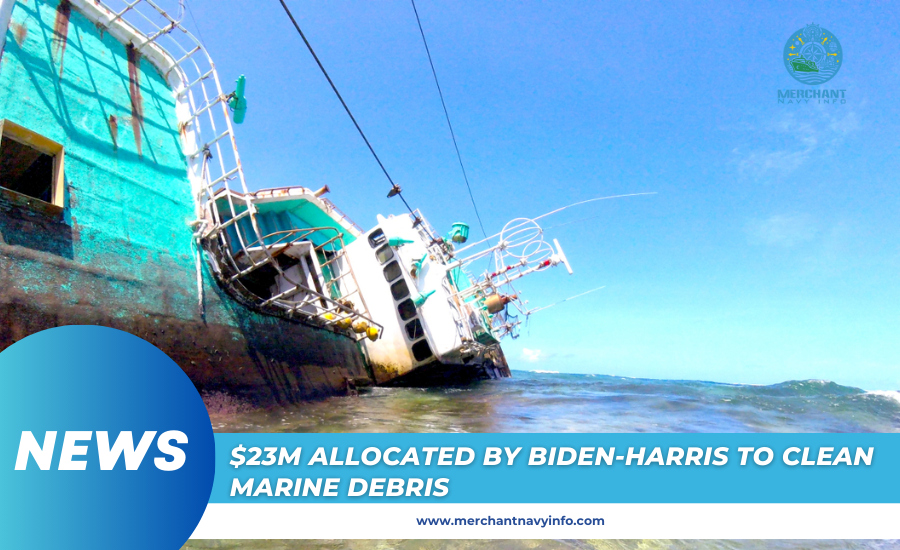
Biden-Harris Administration to Invest More Than $23 Million in Marine Debris Removal.
Today, the U.S. Department of Commerce and NOAA proposed more than $23 million in funding for marine debris removal and interception efforts for 13 multi-year projects in 10 coastal states, three territories, and the District of Columbia. This funding is provided through NOAA’s Climate Ready Coasts Program under the Biden-Harris Administration’s bipartisan infrastructure bill and is part of President Biden’s Invest in America agenda.
The Climate Ready Coasts Initiative focuses on finding climate solutions through carbon storage, building resilience to coastal risks such as extreme weather events, pollution, and marine debris, restoring coastal habitats, building the capacity of coastal communities, and supporting community-led recovery.
“The Biden-Harris Administration is funding critical projects like this one that will help remove and remediate harmful marine debris that can severely impact water quality, habitat, and economic prosperity in coastal communities across the nation,” said U.S. Secretary of Commerce Gina Raimondo.
“These investments, made possible by President Biden’s historic bipartisan infrastructure law, will help improve coastal communities for decades to come, ensuring they have the resources they need to protect their ecosystems and local economies from the impacts of marine debris exacerbated by climate change.”
After a competitive review, NOAA recommended projects from one of two opportunities focused on removing large marine debris or installing, monitoring, and maintaining interception technologies that capture marine debris at or near the source.
The recommended awardees target the largest, most damaging debris, providing tangible benefits to coastal and marine habitats, communities, and economies nationwide.
“This was a highly competitive process that highlights the tremendous need and high demand for community support for marine debris removal,” said Nicole LeBoeuf, Director of NOAA’s National Ocean Service. “These high-impact projects will create cleaner, safer beaches while preventing debris from accumulating in the environment into the future.”
Nine of the thirteen projects focus on removing and disposing of large marine debris, such as abandoned and dilapidated vessels and fishing gear. The remaining four projects focus on implementing proven interception technologies to capture trash before it enters the nation’s waterways, including plastic bottles, food packaging, and other persistent debris in urban environments. All selected projects are expected to promote equity and benefit tribal and coastal communities facing environmental and climate challenges.
Recommended projects include:
Large Marine Debris Disposal:
- American Samoa Port Authority (American Samoa, $3,049,396)
- City of Benton Harbor (Michigan, $1,032,500)
- City of Oakland (California, $3,164,649)
- Alaska Gulf Rangers (Alaska, $3,799,493)
- Metropolitan Washington Council of Governments (Washington, D.C. and Maryland, $963,132)
- Ocean Conservancy (National, $5,218,000)
- Ocean Fund (Puerto Rico and U.S. Virgin Islands, $847,881)
- Rhode Island Department of Environmental Management (Rhode Island, $1,500,512)
- Washington State Department of Natural Resources (Washington, $1,029,285 $)
Marine Debris Interception Technology:
- Rochester Institute of Technology (New York, $912,829)
- Florida State University (Florida, $677,554)
- Savannah Riverkeeper (Georgia, $560,965)
- Galveston Bay Foundation (Texas, $505,592)









